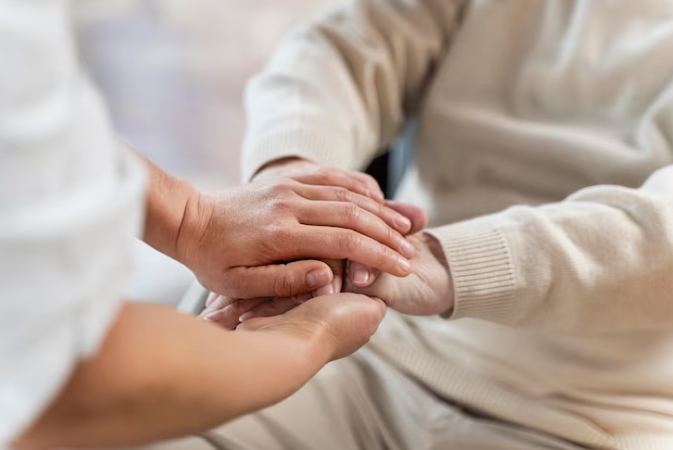Are you looking for ways to provide the best care possible for a loved one who is nearing the end of their life? End-of-life care at home can be a challenging and emotional experience, but with the right knowledge and resources, you can make sure that your loved one’s final days are as comfortable and meaningful as possible.
End-of-life care involves providing physical, emotional, and spiritual support to someone who is facing a life-limiting illness or nearing the end of their life. This type of care can be provided in various settings, including hospitals, hospice facilities, and at home. However, many people prefer to spend their last days at home surrounded by loved ones.
If you have decided to care for your loved one during this difficult time in the comfort of their own home, here are some important things to keep in mind.
Communicate openly and honestly
One of the most crucial aspects of end-of-life care is communication. It’s essential to have open and honest conversations with your loved one about their wishes, fears, and concerns. This can help ensure that their final days are spent according to their desires and values. It’s also important to communicate with other family members and caregivers, so everyone is on the same page and can provide necessary support.
Seek out professional help
While you may be providing most of the care for your loved one at home, it’s crucial to seek out professional help when needed. End-of-life care often requires specialized medical attention, such as pain management and emotional support. Consider hiring a home health aide, nurse, or hospice care team to help with tasks such as administering medications and providing physical care. Avail of medical equipment rental services for any necessary equipment, such as hospital beds, wheelchairs, and oxygen tanks. This can make the caregiving process more manageable for both you and your loved one.
Create a comfortable and peaceful environment
Creating a peaceful and comfortable environment can help your loved one feel more relaxed and at ease. Adjust the temperature to their preferences, play calming music or nature sounds, and ensure that the room is clean and clutter-free. If possible, consider bringing in personal items such as photos, blankets, and keepsakes to make the space feel more like home.
Address physical needs
It’s essential to address any physical needs your loved one may have during their final days. This includes managing pain, providing assistance with daily activities such as bathing and eating, and ensuring they are comfortable at all times. It’s also crucial to maintain proper hygiene to prevent infections and other health complications.
Take care of yourself
Providing end-of-life care can be emotionally and physically exhausting. It’s crucial to take care of yourself so that you can continue to provide the best care for your loved one. Make sure to get enough rest, eat well, and seek support from family and friends when needed. Don’t hesitate to ask for help if you need it. Remember, your well-being is just as important as your loved one’s.
Find ways to make meaningful moments
Even during difficult times, it’s essential to find ways to create meaningful and memorable moments with your loved one. This can include simple activities such as watching their favorite movie, reading a book together, or sharing stories and memories. These moments can bring comfort and joy to both you and your loved one during their final days.
Seek emotional support
Caring for a loved one at the end of their life can take a toll on your emotional well-being. It’s important to seek emotional support from family, friends, or a therapist to process difficult feelings such as grief, guilt, and exhaustion. Joining a support group for caregivers can also provide a safe space to share your experiences and connect with others going through similar situations.
End-of-life care at home is not an easy journey, but with proper preparation and support, it can be a meaningful and comforting experience for both you and your loved one. Remember to take things one day at a time, communicate openly, and seek help when needed. And most importantly, cherish the time you have left with your loved one and make every moment count.
So let this guide be a reminder that you are not alone in this journey and that there is support available to help you provide the best care for your loved one during their final days at home.

